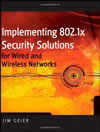All Articles
Accident Prevention & Safety
Finance
Addiction Issues & Substance Abuse
Foot / Ankle Surgery
Appraisal & Valuation
Foreign Affairs - Geopolitics
Aquatics Safety
Gems & Jewelry
Arms - Guns - Weapons
Human Resources
Artificial Intelligence (AI) / Machine Learning (ML)
Injury
Automotive - Vehicular
Insurance Coverage Analysis
Biokinetics
Jails - Prisons - Correctional Facilities
Blockchain Information
Land Use
Boating
Law Enforcement
Chemical Industry
Laws & Procedures
Child Welfare
Logistics - Reverse Logistics
Child Witch Phenomenon
Machinery
Corrosion
Marketing
Cosmetology: Hair / Makeup
Mediation
Criminology
Meditation
Digital / Crypto Currency
Mining
Documentation Examination & Analysis
Nursing
Education & Schools
Obstetrics - Gynecology (OBGYN)
Elder Abuse
Police Practices & Procedures
Electrical - Electrocution
Product Liability
Environment
Radiology
Failure Analysis
Sexual Abuse - Molestation - Harassment
Family Issues
Underwriting
Feng Shui
Yoga
More...

TELECOMMUNICATION-PAGE ARTICLES MAIN PAGE
. Contact Us if you are interested in having your work published on our website and linked to your Profile(s).
All Articles
Accident Prevention & Safety
Healthcare Facilities - Hospitals
Addiction Issues & Substance Abuse
Investigation & Surveillance
Appraisal & Valuation
Jails - Prisons - Correctional Facilities
Artificial Intelligence (AI) / Machine Learning (ML)
Land Use
Audio Forensics
Law Enforcement
Banking
Laws & Procedures
Biokinetics
Legal Issues
Branding - Brand Management
Life Expectancy - Life Care Planning
Child Welfare
Mediation
Computer Forensics
Medical - Medicine
Computers
Medical Records Review
Corrosion
Mining
Design
Neuropsychology
Digital / Crypto Currency
Oil & Gas
Documentation Examination & Analysis
Pain Management
Domestic Violence
Pharmacy & Pharmacology
Elder Abuse
Plants & Trees
Electrical - Electrocution
Public Speaking
Elevators - Escalator - Automatic Doors
Real Estate
Employment
Recreation & Sports
Engines (Combustion - Diesel)
Risk Management
Enterprise Resource Planning (ERP)
Search Engine Optimization (SEO)
Ethics / Ethical Duties
Security
Forensic Analysis
Spirituality
Gems & Jewelry
Supply Chain Management
More...
Featured Articles
There are no active articles here at this time. Please use the search bar, try another category, or contact us if you would like to contribute an article.
This Article is unavailable. Contact Us
Search articles by title, description, author etc.
Sort Featured Articles
Featured resources
November Days
by Bonnie M. Ruth, PhD, CRC, CCM
Criminal Law, Procedure, and Evidence
by Walter P. Signorelli, JD
Implementing 802.1X Security...
by Jim Geier
Follow us










